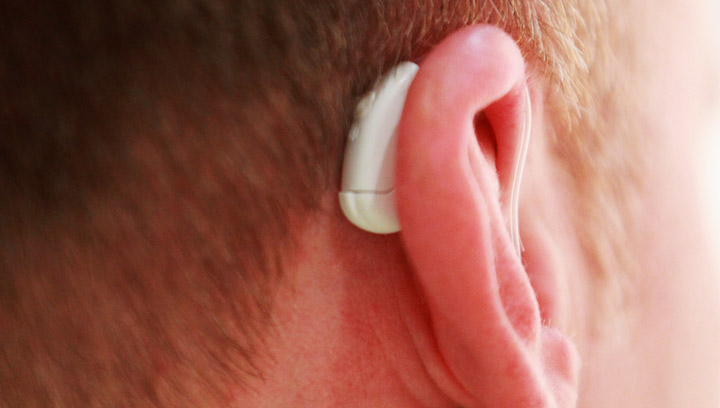More than half of Canadians between the ages of 40 and 79 have at least mild hearing loss, but 77 per cent of them don’t realize it, according to a new study from Statistics Canada.

The study used data from the Canadian Health Measures Survey to compare people with a measured hearing loss found through hearing tests to the number of people who reported having hearing impairment, used a hearing aid, or who had ever been diagnosed with hearing problems.
The number of people whose hearing loss was obvious on a test was much larger than the number who reported having hearing problems.
“We realized that three quarters of people, essentially, had an unperceived hearing problem,” said Didier Garriguet, a principal researcher at Statistics Canada.
People were more likely to have what Statistics Canada called “unperceived hearing loss” if they only had hearing loss in one ear, reported having good overall health and didn’t work in a noisy environment. Hearing loss that was more mild also tended to pass unnoticed.
Those with other hearing issues, like tinnitus, were more likely to notice overall hearing loss, Garriguet said, perhaps because they’re paying more attention to their hearing health.
WATCH: The warning signs of hearing loss and ways to cope
_848x480_1346295363874.jpg?w=1040&quality=70&strip=all)
Dave Gordey, president of the Canadian Academy of Audiology, said he wasn’t surprised by the study results.
“Those individuals that typically seek help for their hearing are those that have more severe hearing loss where there is a direct impact to their communication,” he said.
Mild hearing loss is around a 10 or 15 per cent hearing loss, he said, where “in quiet one-on-one conversations with someone that is three to six feet away from you, you may have a little difficulty in understanding what they’re saying.”
That difficulty, he said, would be exacerbated by a noisier environment, where you’d have even more trouble understanding someone.
WATCH: Hearing loss awareness

There are many reasons why somebody might not know their hearing was deteriorating, he said, though one of the biggest might just be that it happened slowly.
“If these changes are happening very gradually due to aging and if they can control their listening environment where they might be able to get a little bit better audibility or get a little bit closer to that speaker, they may feel that they’re hearing just fine,” he said.
His association would like people to get their hearing tested regularly, as hearing loss can affect a person’s comfort in social situations and their life enjoyment.
“Hearing loss is more than just missing what’s being said at the cocktail party or at your family dinner,” he said. “It really has some impacts through different stages of your life. When you’re working it could have impacts on your success and your career.”
Some people withdraw from social activities or outings because they get frustrated that they can’t understand what’s happening, he said, and can become isolated.
- Naloxone-resistant street drug linked to 9 deaths in Eastern Canada seized in Alberta
- ‘She gets to be 10’: Ontario child’s heart donated to girl the same age
- Buzz kill? Gen Z less interested in coffee than older Canadians, survey shows
- Bird flu risk to humans an ‘enormous concern,’ WHO says. Here’s what to know
It can even affect your health. Newly emerging research suggests that hearing loss is associated with balance problems and falls, as well as dementia risk — though Gordey says that more research needs to be done on these issues.
While an audiologist can’t prevent age-related hearing decline, he or she may be able to provide a hearing aid and even in some cases let you test it right in the office so you can experience the difference, he said.
If your family is telling you that you’re having trouble hearing, you’re cranking up the volume on the TV, and you’re starting to get frustrated in social situations, you may want to get your hearing tested, Gordey said.
“Just like you would go to the doctor to have a physical once or twice a year, you should also have your hearing checked. We’re trying to encourage family doctors to talk to their patients and say, ‘By the way, you’re now over 50. Have you ever had your hearing checked?’”


Comments